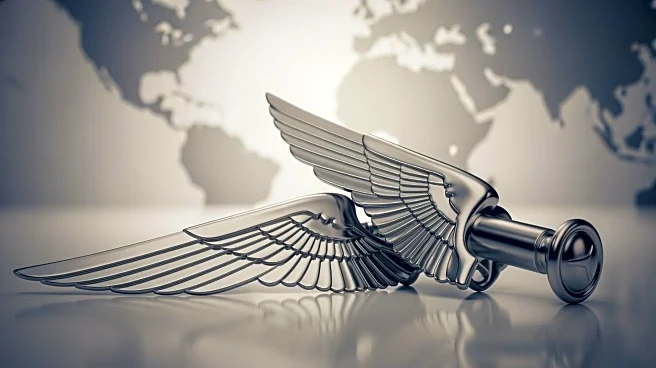What's Happening?
India's Ministry of Civil Aviation recently proposed a 'code of conduct' to the International Civil Aviation Organization (ICAO) aimed at limiting foreign airlines from recruiting Indian pilots. This proposal was driven by the rapid growth of India's aviation
sector, particularly with airlines like IndiGo and Air India expanding their fleets. The Indian government argued that foreign recruitment of Indian pilots creates an unfair competitive disadvantage, as Indian carriers bear the training costs while foreign airlines benefit from the skilled workforce. However, the proposal was not supported by a majority of ICAO member states, who believed such issues should be managed at a national level. The proposal also faced strong opposition from Indian pilot unions, which claimed it violated fundamental rights and could lead to a form of bonded labor.
Why It's Important?
The rejection of India's proposal highlights the complexities of the global aviation labor market, where pilots often seek better pay and working conditions abroad. This situation underscores the challenges faced by rapidly growing aviation markets like India, which need to retain skilled labor to sustain growth. The opposition from pilot unions also raises important questions about labor rights and the balance between national interests and individual freedoms. For Indian airlines, the decision means they must find alternative ways to retain pilots, potentially by improving pay and working conditions to remain competitive globally.
What's Next?
In the wake of the proposal's rejection, Indian airlines may need to reassess their strategies for pilot retention. This could involve increasing salaries, enhancing working conditions, or investing in pilot training programs to ensure a steady supply of qualified personnel. Additionally, the Indian government might explore other diplomatic avenues to address the issue of pilot poaching, possibly through bilateral agreements with countries where Indian pilots are frequently recruited. The ongoing dialogue between airlines, the government, and pilot unions will be crucial in shaping the future of India's aviation workforce.
Beyond the Headlines
The situation also reflects broader economic trends, where skilled professionals in various industries seek opportunities in more lucrative markets. This dynamic can lead to brain drain in developing economies, prompting governments to consider policies that balance national interests with global economic realities. The debate over pilot poaching also touches on ethical considerations regarding labor mobility and the rights of individuals to seek better employment opportunities across borders.
















